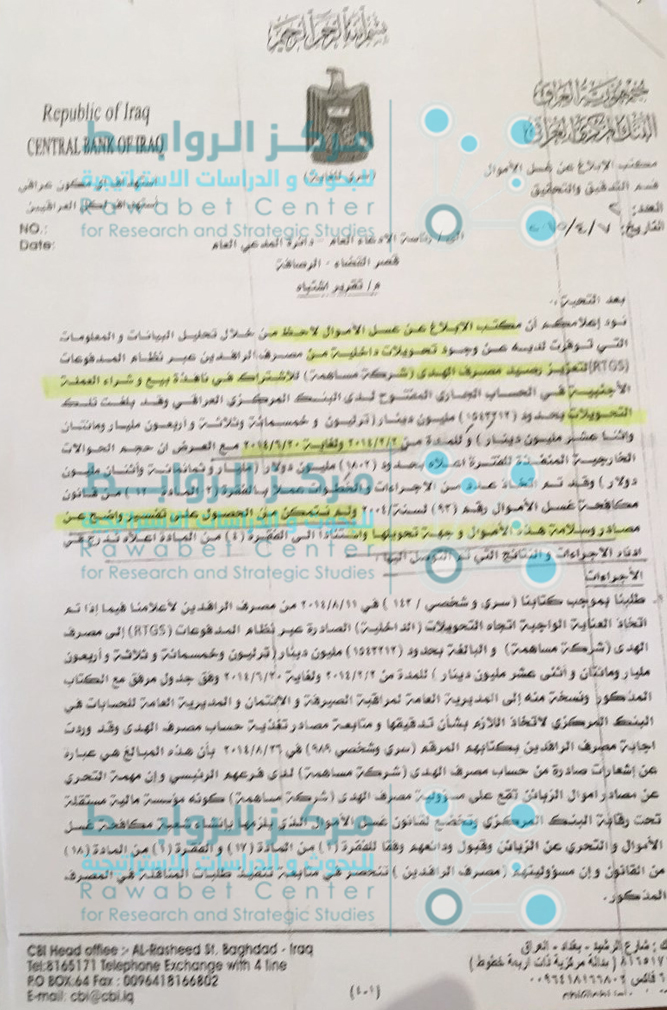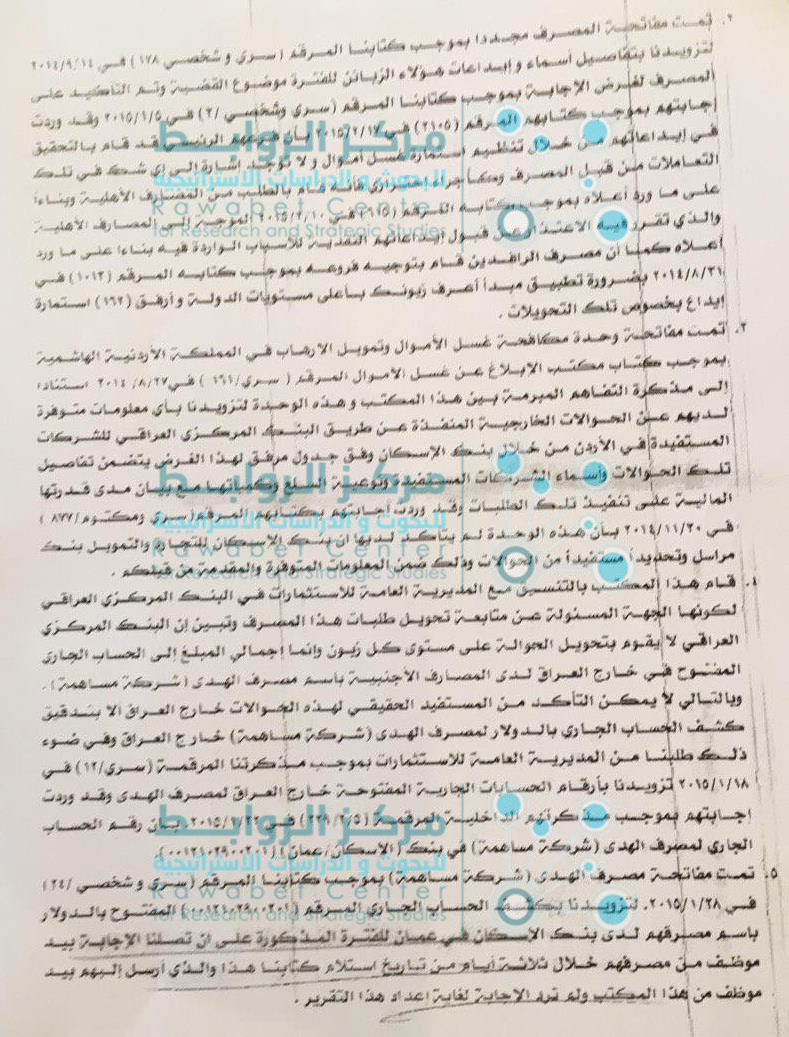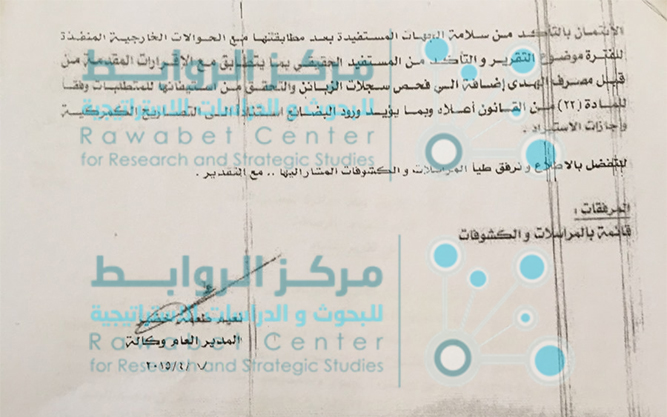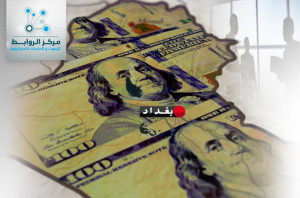The corruption , as defined by Dr. Daoud Khairallah , based on the Latin original and the Arabic dictionaries, is the decay , drift and deteriorate or evil and contrary to the literary law , but is all that can be considered against the righteousness according to the scholar and historian Boutros al-Bustani in his book “Muhit al-Muhit” the diameter of the ocean. In this context, Khairallah saw that the corruption is a disease eating the social fabric of its cultural, political and economic aspects, and the international Transparency organization considers it as the biggest challenges facing our modern world, it undermines good governance and distorts the public policy and hurts the private sector and hurting the poor , while the academic Charbel Nahas saw that corruption is either an emergency odd behavior of exception to the rules of the general regularity or is the result of social, political and economic system that is stable and recognized . In all cases, it is the evil that must be eradicated by insisting on establishing bases of public regularity by educating people and pressure on the judiciary to do its duty, and the educated has to undertake the responsibility to put the System institutions in front of public opinion .
Researchers found that the corruption has a huge impact in increasing the violence, where opinion polls confirmed that corruption is on the top of complaints of citizens in countries that suffered from armed conflicts. According to the International Transparency Organization and its indications that eleven countries out of the twenty , the most suffering from the corruption, have suffered from armed conflict, and that five of these countries are members of the Arab League. It was observed through the evolution of corruption indicators in the Arab countries between 2008 and 2013 , that the countries which are known with what was called by Arab Spring ,Yemen, Egypt, Tunisia, Libya, Morocco had seen a rise in the indicators of corruption .
However, there is no indication at all that there is awareness among officials or the intellectual elite of the risks and damage caused by the corruption to society , and the threat of obstruction in the ways of growth and development. In this context, the Lebanese journalist Fadl Chalak drew a bleak picture of the Arab nation: «nation wants to engage in the world in the nineteenth century, but the Sykes – Picot was to divide it, and the Balfour Declaration to defeat it . Nation clouded by the sense of shame in its daily life and shame in its relationship with the Creator (the God) . it was Betrayed by fundamentalist «Muslim Brotherhood» and the nationalism of Baath and assumed rationalism of liberalism and communism. The nation that its bases has been undermined by the tyranny, that is no longer believes in itself, and this is the basis of making it to miss the safe . ” This is the bleak picture that almost abbreviate the visions of researchers of the reality of the nation and the state of corruption in the Arab world.
The auction of “foreign currency ” is considered , which was created after the US occupation of Iraq in April / May 2003, specifically in the year 2004 by the Central Bank of Iraq , to represent a new form of the economic corruption forms associated to the process of money laundering in Iraq , as the rawabet center for Research and Strategic Studies was able to obtain an official document issued by the Central Bank of Iraq and sent to the presidency of the public prosecutor stating that “Huda bank” managed by ” the auction of foreign currency” and during the period between 02.02.2014 till 06.20.2014 AD, to transfer of “billion and eight hundred and two million US dollars “out of Iraq for spending on imports , and that it did not happen. Ti is worth noting that the auction of currency in Iraq has become a way to smuggle money out of Iraq, and this is what was referred to by the recent economic article of the rawabet center in where it indicated by the text “According to the inquiry of the committees of the House of Representatives of Iraq and international reports , it has been wasted and looted the amount of 312 billion dollars over the past years, which they were the revenues of oil pumped by Central Bank of Iraq to the market, most of which had been transferred abroad. ” This number is very large in a country suffering severe economic crisis noting that the case in the state of “wealth” arrived to borrow from the IMF to cover its expenses!
Despite the document’s central bank dated on 04/07/2015 of which refers to the referral of “Huda Bank” to the Presidency of the public prosecutor, but that the bank until the day taking part in the ” auction of foreign currency ” instead of closing the bank and is being investigated with its owners and if they have been convicted , they should be placed in prison, but what is happening in Iraq is contrary to the world legal proceedings followed in all countries, and this is proof that the economic corruption which is closely linked to the political corruption in Iraq has been rooted deeply during the thirteen previous years, and it seems that economic corruption has become a healthy situation in Iraq, so we see that the corrupt is rewarded for his corruption by allowing him to transfer the Iraqi people’s money abroad to enter to what is so-called by the process of “money laundering” that contribute to the support of terrorist networks and this risk is not only confined to Iraq but includes all countries in the region.
Magda Tamimi, member of Finance Committee in the Iraqi Council of Representatives made it clear on the television interview in the program, “from the last” and which was broadcast on the satellite channel of the Dejlah, showing the mechanism of action of private banks in Iraq and the mechanism for the purchase of foreign currency from the Iraqi central bank and gave an illustrative example as follows: “all private bank has fifteen banking office, one day we sent a staff member of the Finance Committee to this private Bank, which is a banner in a rented building of closed doors to open when the bell rings in which there are only some of the tables , written on some of it the word ” remittances, “and there are other” sections “so these are the kind of banks that buy foreign currency with the official price from the central bank .” Dr. adds that “this bank when buying from the central bank as the value of ten million dollars , it is required to buy goods equal to its value but exactly the opposite is happening noting that the bank buys worth of two or three million dollars and the rest are employed in the other business .”
Dr. says that “Iraq is the only country in the region to sell the dollar through a public auction, and this has a negative impact on the economy, because most of the oil revenue goes abroad via delusional imports ,” adding that “the currency auction sold in the year 2015 more than $ 38 billion, while the income from Iraq’s oil revenues last year of $ 44 billion. ” She emphasized that the “survival of the state of the currency auction is unhealthy and harmful to the country’s economy and a particular class takes advantage of it seeking to increase its money on the expense of Iraq,” calling for “the abolition of the auction of foreign currency .” From this it is clear that Iraq’s money was stolen through an auction of currency in accordance with the fake contracts .
Dr. Magda Tamimi wonders in that program, why the Iraqi Central Bank sells foreign currency to certain persons not to sell based on documentary credits to transfer money, which does not have any manipulation. “? This is a kind of selling “the auction” open the floodgates on another type of corruption linked to the price of the Iraqi dinar exchange in US dollars, and the question that arises here is how does it happen?
One hundred dollar price today in banking offices ” is 131000″ thousand Iraqi dinars noting that it was purchased by “118000” thousand Iraqi dinars from the Central Bank of Iraq noting that means the difference is “13000” per one hundred thousand dollars from the central bank. With this simple calculation, “the daily theft” from the central bank, ranging from 16-17milir Iraqi dinars a month, “510” billion Iraqi dinars per month and all this financial corruption borne by the Iraqi people who suffers by the daily crises and here some ask : Where is the Governor of the Central Bank, the Office of the Inspector General, financial control and the integrity Commission, and the Prime Minister of this corruption
It is well known that the performance of the Supervision offices for its duties such as the Integrity Commission and the Office of Financial Supervision and the offices of general inspectors , require to provide the political support for them, and this is what has not been achieved in Iraq, because the political, executive, legislative and judicial leaders, most of them involved in corruption in one form or another, and if this is as such, it is impossible for Supervision offices to accomplish something that is noteworthy in the face of corruption, especially if we know that these parties are only a number of independent professionals who do their jobs away from politics and partisan control.
And concerning the corruption that is going on in “A currency auction” and smuggled out of Iraq and stimulating the process of “money laundering” , Haitham al – Jubouri , a member of the Finance Committee in the Iraqi Council ofRepresentatives, pointed out the corruption that occurred in the auction currency, saying that ” the central bank issued a facility in the sale of currency , where any known businessman can buy the dollar, by providing a purchase invoice for import of goods from a particular country, then these funds are transferred to a banking company, “he said , adding the presence of one of the people in Baghdad , doing the industry invoice and stamped it with seals of foreign companies, and the value per invoice amount to four dollars “. and adds “The businessman who owns a bank or banking company will transfer the funds to several countries to sell the dollar and take advantage of it , ” adding that ” the Central Bank confirms to the competent authorities that the checking of invoices is not of his competence, but from the jurisdiction of the economic crime department of the Interior Ministry . ” .
the central bank acknowledged of the financial irregularities of the institutions participating in the auction of of the currency, and has taken several measures to reduce it , but look weak by observers.
the Central Bank refused to make any talk about this file, only issued a statement, saying: “we have issued during the period 2012-2015 many proceedings at the competent Iraqi courts against banks and companies contrary to the instructions of “selling foreign currency “, in addition to those relating to issues of anti – money laundering , and the number of such cases was nearly 97 suit related to banks and other financial institutions and dealers of it from the customers, and many judiciary sentences have been issued in this regard. ”
he added that” it was the imposition of financial penalties and the limits of its values reached to 400 billion dinars (333 million dollars) , included 40 banks. ” And the bank refused to restrict the process of selling the currency because it violates the principles of the International Monetary Fund that agreed to by Iraq, and intersects with the article 28 of the law, in addition to creating a large deviation in the official exchange rate and the market which will reflect negatively on the prices.
The question in this context what is the impact of money laundering on a n exhausted economy such as the Iraqi economy? At first the anti-money laundering process is found in the first place to limit the spread of crime and prevent such groups from getting money and thus expand its operations in violation of the law, but that there is a negative economic impacts hit the Iraqi economy in which the money laundering is made and the most important of it are the deterioration in the purchasing power of the local currency resulting from the increase of the liquidity and therefore the demand is increased , which works to increase the rate of inflation and thus raise prices.
Surprisingly, of those , the corrupt who are looting the capabilities of the Iraqi people, noting that they are themselves on the forefront of public affairs of Iraq and speak “sincerely” for the concerns of the Iraqi people and the aspirations of his youth and problems and propose necessary solutions to solve it , they are well aware that they are an integral part of the tragedies of the Iraqi people, these financial parasites were not to become financial empires in Iraq unless there is fertile environment for the financial and administrative corruption in Iraq after the ninth of April / May 2003. Since the founding of modern Iraq, starting with the monarchy “King Faisal I and King Ghazi, the King Faisal II,” which lasted until 1958, and through the republican system, “President Abdul Karim Kassem, President Abdul Salam Arif and his brother Abdul Rahman Arif, President Ahmed Hassan al-Bakr, and President Saddam Hussein” Iraq has not seen the phenomenon of corrupt financial empires, as seen in Iraq after the US occupation of it.
This financial corruption is only part of the rampant corruption in the various joints of Iraq, which it is difficult to deny it, and determining its size due to its tangled strings .That’s not surprising the exit of thousands of Iraqis demanding reform and accountability of the corrupt. the administrative apparatus is classified as one of the most important reservoirs of corruption in Iraq, since its structure undergo to the considerations of sectarian quotas, as the state continued to develop top jobs to fulfill their promises to certain party in terms of satisfying its parties , until it became a factor of waste factors of resources and confuse the executive working due to the conflict of powers. As well as economic corruption and corruption associated with the General Secretariat of the Council of Ministers and judicial corruption. Add to that the corruption of essence of the political process that led to the of sectarian and nationalist governments hit by corruption, as well as the failure to take decisive action regarding the trial of influential corrupt .
In the light of all this , it was not surprising that Iraq is classified for two consecutive years at the top of the most corrupt countries in the international community as ranked in the latest reports of InternationalTransparency organization by the rank of 170 before the Sudan, Somalia, North Korea and South Sudan. The figures of the corruption in Iraq after the 2003 are surprising , for example, the financial waste in the era of former Iraqi Prime Minister Nuri al-Maliki’s reached to US $ 109 billion, while Iraq’s financial losses according to a report to the Iraqi parliament in the era of Prime Minister between 2006 -2014, approximately US $ 360 billion. The Economic adviser to Iraqi Prime Minister spoke about the existence of seven thousand project in 2014, but has been implemented, only 400 projects of it , noting that the percentage of completion was only between 2 to 10 percent. Vice Chairman of the Finance Committee in the Iraqi Parliament Magda Tamimi also spoke about the presence of six thousand imaginary project worth 228 billion US dollars in 2014.Where the successive Iraqi governments wasted on illusive productive projects more than $ 250 billion.
the former head of Iraqi Commission of Public Integrity, Moussa Faraj, said that corruption leaders are seniors of the politicians and the government , and this corruption was at the forefront of the reasons that led to the fall of one-third of Iraq to the hands of Daesh, though politicians have reduced the Iraqi people with the components , and the component with the parties, the Party with those who are the closest to them , and the closest to the cortege . Iraq of today can not be rescued by reforms, even if they exist, because the basis of any real reforms must begin the trial of whales of corruption and recover Iraqi stolen funds that made this corrupt heads wealthy. No hope of saving the rest of Iraq, but a purge of these corrupt heads.



Rawabet Center for Research and Strategic Studies

